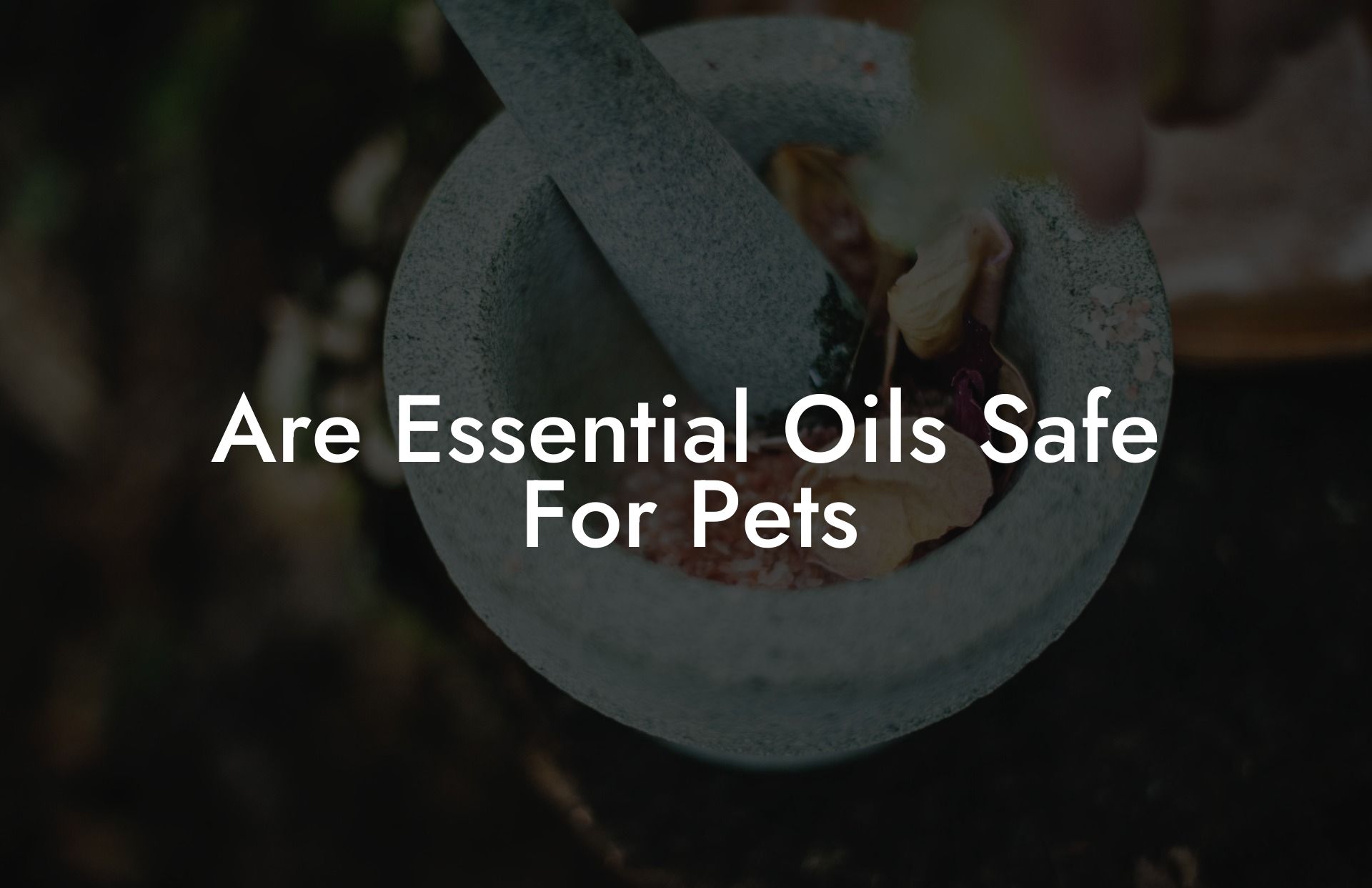Essential oils have gained immense popularity for their vast array of benefits on human health and wellbeing. However, as a pet owner, you might be wondering if these aromatic oils are safe for your furry family members too. In this comprehensive guide, we dive into the world of essential oils and pets, highlighting the safety precautions you need to consider and which oils to use and avoid to keep your beloved pets healthy and happy.
Table of Contents
Are Essential Oils Safe for Pets?
In simple terms, some essential oils are safe for pets, while others are not. It’s crucial to understand that pets, like dogs and cats, have a heightened sense of smell compared to humans, which means they might be more sensitive to certain essential oil scents.
Additionally, their body systems and metabolism function differently, so it’s essential to ensure that you’re using oils that are safe and approved for pet use.
Essential Oils Safe for Pets
- Lavender: Known for its calming and soothing properties, lavender oil can help reduce anxiety and stress in pets.
- Chamomile: This gentle oil has soothing and relaxing effects and can help with skin irritations and allergies in pets.
- Cardamom: Cardamom helps support the digestive system and can aid in reducing nausea and upset stomachs in pets.
- Spearmint: Spearmint can help with digestion issues and reduce bad breath in pets.
Essential Oils to Avoid
There are certain essential oils that can be toxic to pets and should be avoided:
- Tea Tree
- Eucalyptus
- Cinnamon
- Pennyroyal
- Wintergreen
- Thyme
- Clove
- Oregano
It’s important to always dilute essential oils and use them with caution around pets, especially for smaller animals. If you have any concerns or questions regarding essential oil safety for your pet, consult with a veterinarian before using the oils.
How to Safely Use Essential Oils with Pets
Dilution and Proper Application
Always dilute essential oils before using them on your pets. You can dilute them with a pet-safe carrier oil, such as coconut or jojoba oil. Use low concentrations of essential oils to avoid overwhelming your pet’s sense of smell, typically no more than 1% dilution.
Diffusing Essential Oils
When diffusing essential oils around pets, make sure to use only pet-safe oils and use a low concentration. Provide adequate ventilation and give your pet an opportunity to leave the room if they become overwhelmed by the scent.
Listen to Your Pet
Observe your pet’s reaction to essential oils. If you notice any signs of discomfort, such as excessive sneezing, coughing, or agitation, discontinue the use of oils immediately and consult a veterinarian if symptoms persist.
Are Essential Oils Safe For Pets Example:
Imagine you have a dog that struggles with anxiety during thunderstorms. You decide to try lavender essential oil to help calm your pet. First, you dilute the lavender oil with a carrier oil at a 1% concentration. Then, you gently massage a small amount of the diluted oil onto your dog’s neck and chest. As the storm approaches, you notice your dog is significantly calmer and more relaxed than usual. By listening to your pet and using a pet-safe essential oil, you’ve successfully helped your furry friend cope with a stressful situation.
In conclusion, essential oils can be a wonderful addition to your pet’s overall wellbeing, but only when used correctly and with the proper precautions. By educating yourself on the safe use of essential oils for pets, you can enhance your pet’s quality of life and strengthen your bond with them. If you found this article helpful, please consider sharing it with fellow pet owners. For more essential oil guides and high-quality, artisan essential oils, explore the Oshu Oils range and visit our blog for a wealth of knowledge on all things aromacology.





















